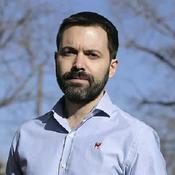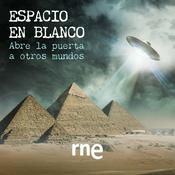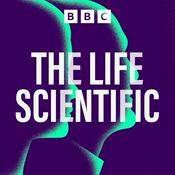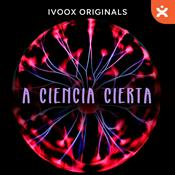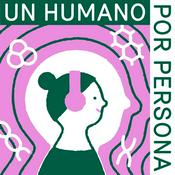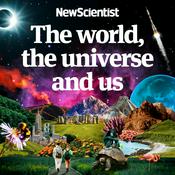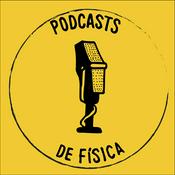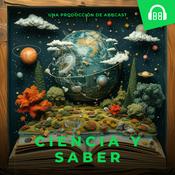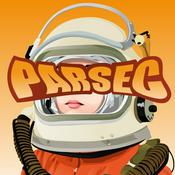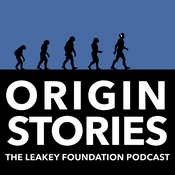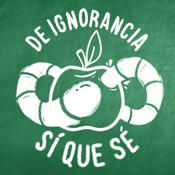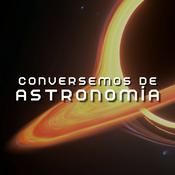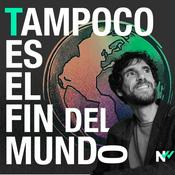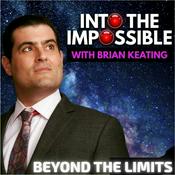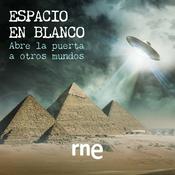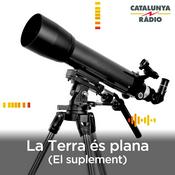CORDIScovery – unearthing the hottest topics in EU science, research and innovation
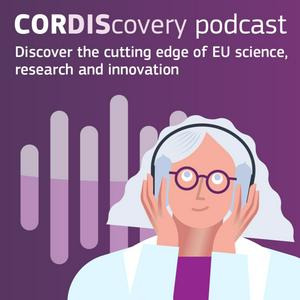
52 episodios

1. It’s not waste until it’s wasted!
16/12/2025 | 25 min
This special episode of CORDIScovery comes to you from the EU’s Researchand Innovation Days. Moving from a linear model to a circular economy can lead to a cleaner and more competitive Europe by reducing waste and reusing resources. Our guests discuss how to reach this objective.Mattia Comotto, head of circular economy and sustainability at the Aquafil Group, focuses on using bio-based ingredients from sugars to produce sustainable plastics. Ivar Palk, who coordinated the RAIKU bio packaging project is interested in using wood as a natural, biodegradable packaging material which uses natural resources more efficiently.Esthèle Goure managed the WASTE2FUNC project, which focussed on converting food and agricultural waste into biosurfactants and lactic acid for consumer products, offering an alternative to fossil-based surfactants.

Pushing back the boundaries of research with AI
28/11/2025 | 33 min
Artificial intelligence: are we heading for a dystopic future, or one in which a labour force is relieved from menial tasks?Machine learning is second-guessing us; is this making our lives easier, or is it intrusive? Corporates are hoovering up content to train large language models in ways that are hard for users to control. But there is no doubt that AI, and related tools, are pushing back the boundaries of research.AI can be framed as technology that impacts us negatively, but today’s guests are achieving results and gaining knowledge that would not have been possible without it.John Kelleher is the director of the ADAPT ResearchIreland Centre for AI-Driven Digital Content Technology andprofessor of Computer Science at Trinity College, Dublin. Jane Ohlmeyer is professor of Modern History at Trinity College Dublin, chair of the Irish Research Council, andan expert on New British and Atlantic Histories. She is applying AI to the recovery of the lived experiences of ‘ordinary’, non-elite women in early modern Ireland. Béla Mihalik is a senior developer at Ideas Science,in Hungary. He specialises in the application of AI and deep learning to develop novel tools that can rapidly screen potential biothreats in the form of pathogens and bacteria.

When it comes to dinosaurs, was Orwell right?
05/11/2025 | 33 min
In his novel Animal Farm, Orwell’s character claims: “Four legsgood, two legs bad.” Would the tyrannosaurs agree? Or did bipedalism give them an evolutionary advantage? Examining how birds, crocodiles and other animals move can tell us about the biomechanics of extinct animals, and the impact that had on their survival. Beyond moving, the way in which dinosaurs interacted with their environment shaped the world around them. The co-evolution of species and ecology over deep time offers insights about modern ecosystems, so what can welearn from a long-vanished world?John Hutchinson is a fellow of the Royal Society and a leaderin the field of evolutionary biomechanics. Davide Foffa is a postdoctoral researcher in palaeobiology at the University of Birmingham. He uses palaeontological data to understand the origins and evolution of ecosystemsthrough major evolutionary events such as mass extinctions.Sara Varela is a palaeoecologist at the faculty of biology at the University of Vigo, in Spain. She considers the relationship between climate and life on Earth, and how past climate changes affected the geographic ranges and evolutionary pathways of species.For more info, visit: https://link.europa.eu/ckRfxR

Turning to nature for urban solutions
23/9/2025 | 34 min
About three quarters of the population in the EU are urbanites. Are you living in an inclusive area, with parks and public spaces you and the other local residents have had a say in designing? Or is that something that seems out of your reach? Nature-based solutions, or NBSs, co-creation, living labs – what do these terms mean and why are they important? Let’s turn to our three guests today, all of whom benefited from research and innovation funding: Darko Ferčej is head of the EU project Unit within the Slovenian non-profit institute, E-zavod. His area of interest is transforming policy theories into practical changes that benefit people’s lives in urban environments. Laura Fregolent is professor of Urban Planning at the University of Venice in Italy. Over the years she has investigated the processes of urban transformation and sprawl, and the social impact of housing dynamics. Gonçalo Canto Moniz is a professor of Architecture and researcher at the Centre for Social Studies at the University of Coimbra, in Portugal. He is fascinated by the way co-creation of nature-based solutions within our cities can promote more inclusive urban neighbourhoods. For more info, visit: https://link.europa.eu/mN9Y8B

Knowledge, capital and labour – networks of exchange
19/8/2025 | 34 min
From early economic activity along the Silk Road to modern-day Brazil, what are the unexpected impacts of the movement of labour and the flow of capital? Taking one market as an example, how can pharma be made more equitable? As the words ‘tariffs’, ‘economic growth’, ‘global trade’ and ‘sanctions’ fly around us, the economy and how markets are interlinked is something we are all growing more aware of.Listen on as our three guests unravel some of the complexities: Sitta von Reden is professor of Ancient History at the University of Freiburg, Germany. Paula Bustos is research professor at Pompeu Fabra University, and Susi Geiger is professor of Markets, Organisations and Society at the College of Business, University College Dublin.For more info, visit: https://link.europa.eu/4pGxkn
Más podcasts de Ciencias
Podcasts a la moda de Ciencias
Acerca de CORDIScovery – unearthing the hottest topics in EU science, research and innovation
Escucha CORDIScovery – unearthing the hottest topics in EU science, research and innovation, Esto no ha pasado y muchos más podcasts de todo el mundo con la aplicación de radio.es

Descarga la app gratuita: radio.es
- Añadir radios y podcasts a favoritos
- Transmisión por Wi-Fi y Bluetooth
- Carplay & Android Auto compatible
- Muchas otras funciones de la app
Descarga la app gratuita: radio.es
- Añadir radios y podcasts a favoritos
- Transmisión por Wi-Fi y Bluetooth
- Carplay & Android Auto compatible
- Muchas otras funciones de la app


CORDIScovery – unearthing the hottest topics in EU science, research and innovation
Descarga la app,
Escucha.



